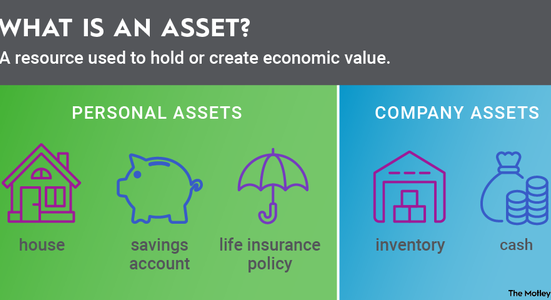Last Updated:
Merely having a deed registered with the authorities doesn’t suffice if other legal requirements—such as possession or a valid sale agreement—are not met

The ruling also reiterates that possession, or actual physical control, is a vital element of ownership. (Pixabay)
The Supreme Court of India, in a landmark ruling, has emphasised that simply registering a property does not automatically confer ownership, clarifying that true ownership is determined by more than just the registration of a document.
The case in question revolved around a dispute where the appellant, despite having a property registration, was not recognised as the rightful owner due to various legal nuances surrounding the land transaction. In its ruling, the Supreme Court noted that a registered document does not automatically establish legal ownership unless the title and possession of the property are in line with the law.
The court stressed that “legal possession” of a property is a key factor in determining true ownership. Merely having a deed registered with the authorities doesn’t suffice if other legal requirements—such as possession or a valid sale agreement—are not met. This new interpretation is expected to have far-reaching consequences for property disputes across the country.
WHAT DOES THIS MEAN FOR PROPERTY BUYERS?
For many buyers, the ruling might come as a surprise as it challenges the commonly-held belief that once a property is registered, the buyer automatically holds legitimate ownership rights. The court’s decision stresses the importance of due diligence, including verifying the legitimacy of the property’s title and ensuring that all relevant documentation is in place.
The ruling also reiterates that possession, or actual physical control, is a vital element of ownership. A property might be registered, but if someone else has physical possession or there are disputes regarding the title, ownership could be contested. This could affect a range of property transactions, from buying and selling land to disputes over inherited properties.
WHAT ARE THE DOCUMENTS YOU MUST POSSESS?/strong>
1) The Sale Deed
The Sale Deed is a critical legal document that serves as proof of the sale and transfer of property from the seller (builder) to the buyer. Often, years after purchasing a home, the buyer may wish to sell the property, making the Sale Deed essential. It is typically executed after the sale agreement and once all terms and conditions outlined in the sale agreement are met. For any first-time homebuyer, the Sale Deed is a vital document for ensuring proper legal ownership.
2) The Mother Deed
When it comes to legal documents in property transactions, the Mother Deed holds significant importance. This document traces the property’s entire ownership history. It is particularly needed by banks when a buyer seeks a loan against the property. If a buyer cannot locate this document, they may need to approach local authorities for assistance in obtaining it. Its role in verifying ownership history makes it indispensable during property transactions.
3) The Sale and Purchase Agreement
The Sale and Purchase Agreement is one of the most important documents when buying a flat. It outlines the terms and conditions agreed upon by both the buyer and the seller. Key details, such as the agreed purchase price and any other negotiated terms, are included. This agreement serves as a safeguard for both parties, ensuring that both the buyer and seller are on the same page regarding the sale.
4) The Building Approval Plan
Before starting construction, a builder must obtain the necessary sanctions under the Building Bylaws, Master Plan, and Local Body Acts. These sanctions involve two key approvals:
A) The Building Plan
B) The Layout Approval
One common mistake first-time homebuyers make is failing to ensure that the builder adheres to these crucial terms and conditions. Non-compliance could lead to legal complications, particularly if local authorities conduct spot checks, which are common in new buildings. It is essential to verify these approvals before finalizing the property deal to avoid future issues.
5) The Possession Letter
The Possession Letter is issued by the builder and indicates the date on which the buyer can take possession of the property. It is prepared after receiving the Completion Certificate. While this letter confirms possession, it does not serve as proof of ownership. For legal ownership, the buyer must obtain the Occupancy Certificate.
6) The Completion Certificate
The Completion Certificate (also known as the Occupancy Certificate) is a key document that verifies the building has been constructed as per local regulations and has passed inspection by the municipal or development authority. This certificate is required to avail essential utilities like water, electricity, and drainage services. Without it, the property is considered illegal, and the buyer could face penalties or eviction. If the builder fails to obtain this certificate, the buyer can request it directly from the local municipal authority.
7) The Khata Certificate
A Khata Certificate is a revenue document that contains details of the property, including its size, location, and the area on which it is built. It is crucial for paying property taxes and is often required when applying for a home loan. It also serves as a form of identification for the property. Having the Khata Certificate is essential for applying for basic services like electricity and water supply. Even if purchasing land for residential purposes, the Khata Certificate remains one of the most significant documents in the land-buying process.
8) The Allotment Letter
The Allotment Letter is vital for buyers purchasing homes that are still under construction. This letter includes details of the payment structure, additional charges for extra amenities, and other financial obligations. It is an essential document for obtaining a loan from a bank as it specifies the amount that the buyer is required to pay. For those looking to buy properties under construction, the Allotment Letter provides clarity on the financial terms and payment milestones.
9) Encumbrance Certificate
This is the proof of free title and ownership, which confirms that there is no pending legal or financial liability on the property. It is obtained from the sub-registrar’s office and covers a specified period, usually up to 30 years. The EC is essential to ensure that the property is free from any mortgages, loans, or legal disputes.
10) No Objection Certificates (NOCs)
Various NOCs may be required, depending on the location and nature of the property. Some common NOCs include the Non-Agricultural Land Certificate, Environmental Clearance Certificate, Fire NOC, and Society NOC (in the case of purchasing a property in a cooperative housing society).
11) Identity and Address Proof
The buyer needs to make sure that the seller has valid identity proof such as passport, Aadhar card, or PAN card. Additionally, address proof documents like utility bills or bank statements can be provided to establish the residential address.
12) Compliance under RERA (Regulation and Development) Act, 2016
Developers should register their project with the RERA authority. A buyer should verify if the property has been RERA-registered or not. RERA for each state also gives the details of any complaint filed against the project. To operate legally, all real estate brokers should also be registered with the state RERA.
WHAT NEXT FOR PROPERTY OWNERS?
For those who have recently bought or sold property, the ruling highlights the importance of ensuring proper verification and following due process in transactions. Buyers are urged to check not just the registration documents but also the actual possession of the property and any possible encumbrances that might affect ownership. Legal experts recommend that buyers secure a clear title certificate and even seek title insurance to safeguard against future disputes.
While the ruling might complicate the process of buying property in the short term, it is ultimately seen as a move towards improving the legal robustness of property ownership in India. By requiring more than just registration, the court aims to reduce the chances of fraudulent transactions and disputes in the real estate sector.
WILL IT AFFECT PROPERTY RATES?
Since the ruling could lead to more stringent checks and processes to verify ownership, it might make buyers more cautious, particularly in areas with unclear property titles or past disputes. This could make transactions take longer, increasing the time it takes to close a deal, which could affect demand in certain regions and, indirectly, property prices.
Market Transparency: If people become more aware of how title disputes can affect their ownership rights and face more pressure to ensure legal clarity before purchase, it could create more transparency in the market. In the long run, this could create a more stable market, potentially stabilising or slowing down rising property rates in areas previously known for high legal risks.
Impact on Illegal or Unclear Property: The ruling might discourage buyers from investing in properties that don’t have clear titles, thus decreasing demand for such properties. In turn, property prices for such assets could drop due to lower demand.
Possibly Higher Costs for Buyers: As buyers are now required to ensure that they have clear and legal titles, the process of verification might involve more legal work, due diligence, or even title insurance, increasing the overall cost of purchasing property. This could indirectly impact property rates, particularly in markets where legal issues have been common.
While the ruling is unlikely to directly change property rates, it could lead to shifts in how properties are bought and sold, especially in terms of legal clarity and ownership verification. Over time, these changes might influence market dynamics in specific areas or types of properties.

Apoorva Misra is News Editor at News18.com with over nine years of experience. She is a graduate from Delhi University’s Lady Shri Ram College and holds a PG Diploma from Asian College of Journalism, Chennai. M…Read More
Apoorva Misra is News Editor at News18.com with over nine years of experience. She is a graduate from Delhi University’s Lady Shri Ram College and holds a PG Diploma from Asian College of Journalism, Chennai. M… Read More
- First Published:







